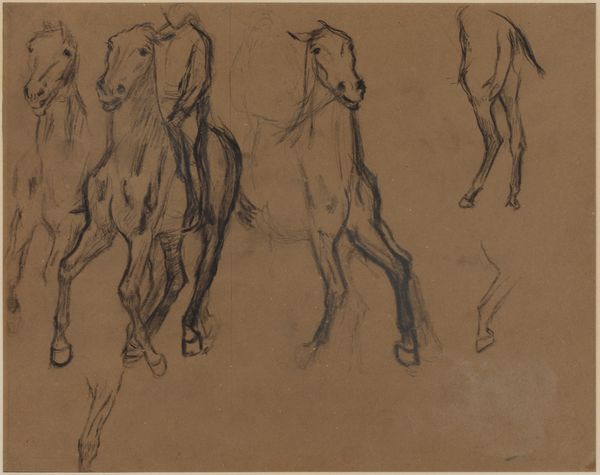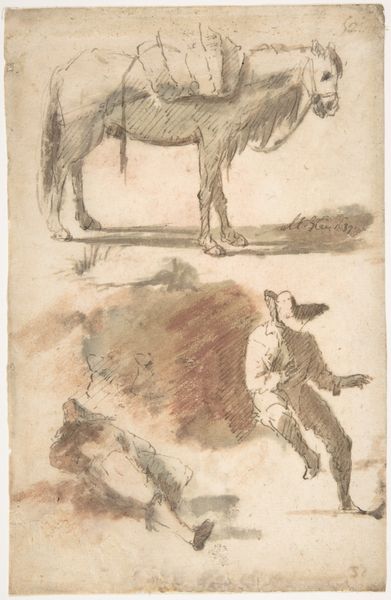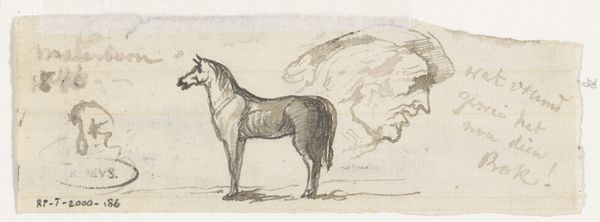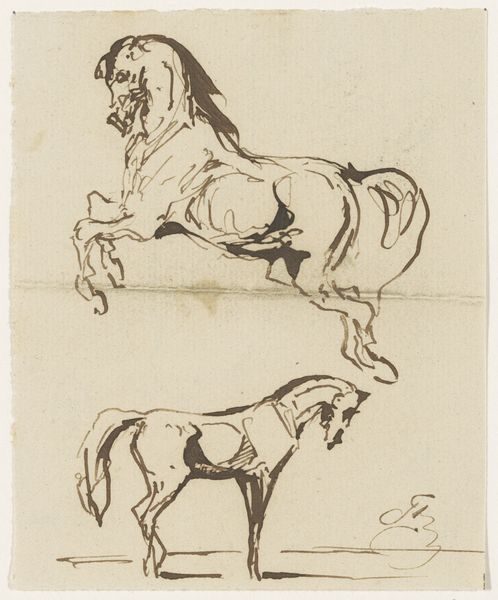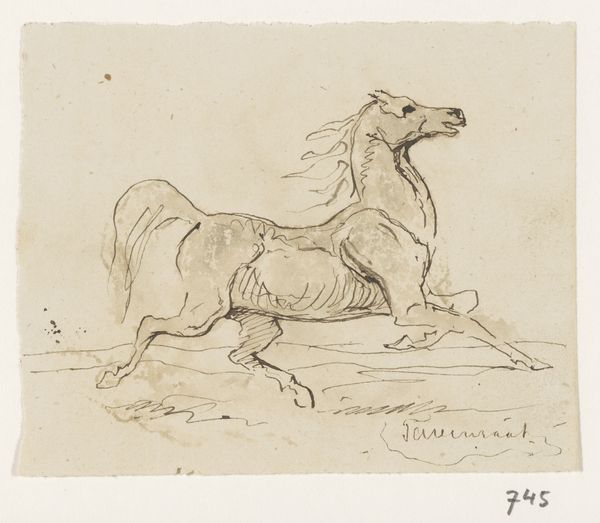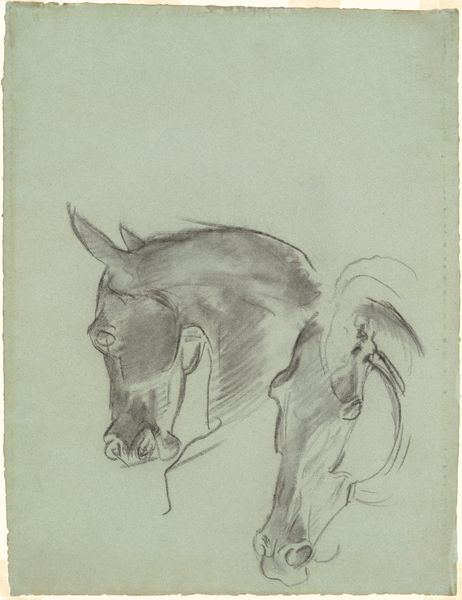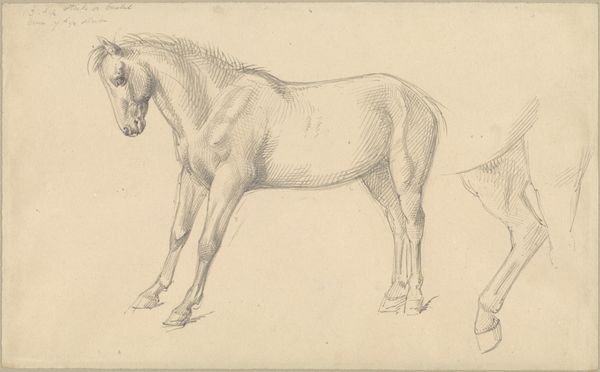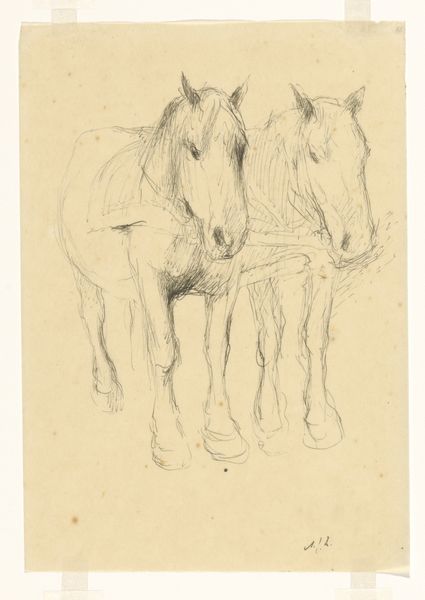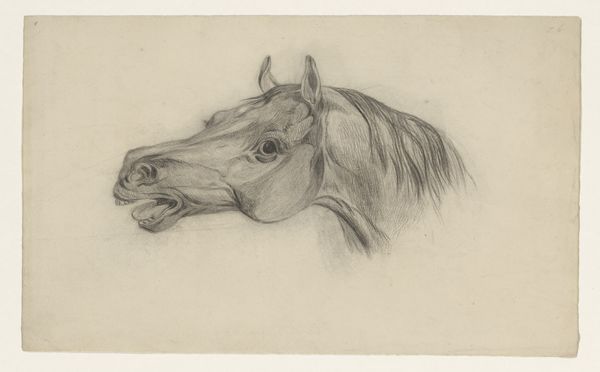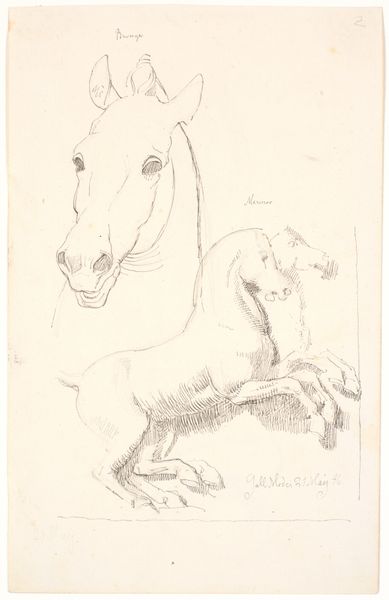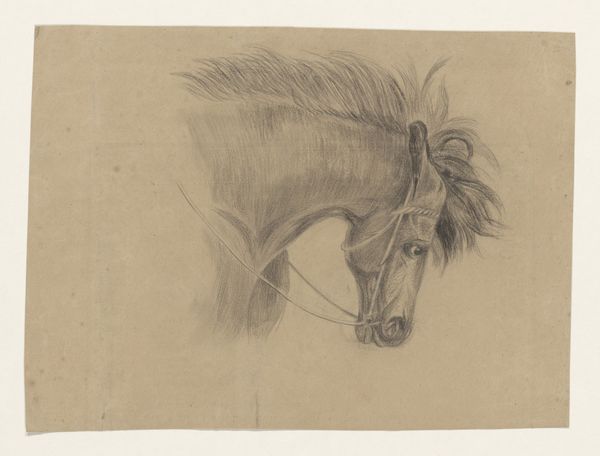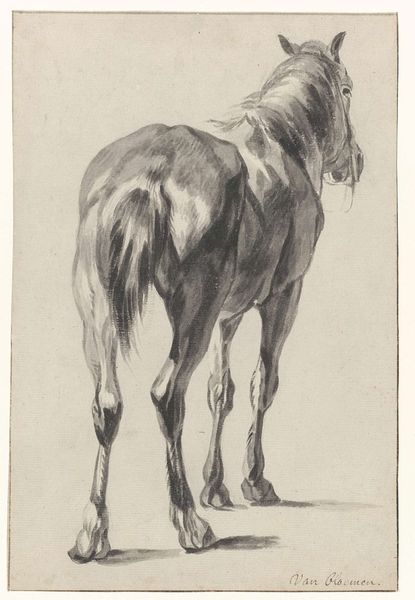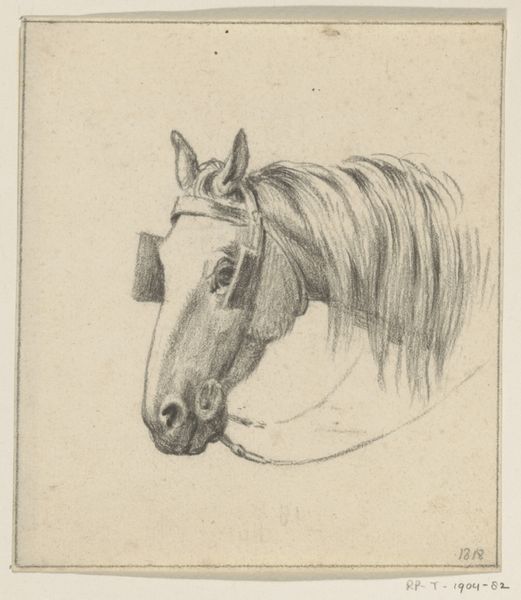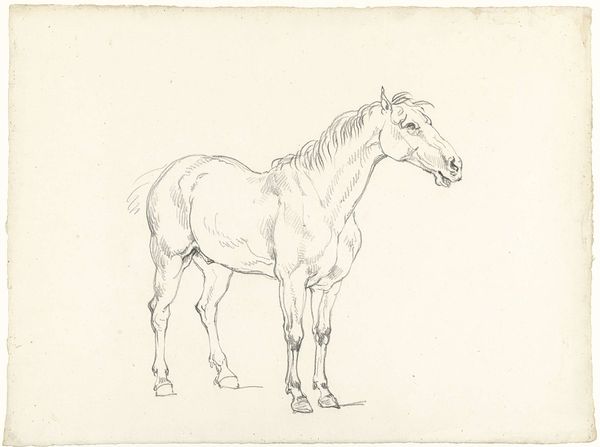
drawing, pencil, graphite, charcoal
#
drawing
#
pencil sketch
#
landscape
#
charcoal drawing
#
figuration
#
pencil drawing
#
pencil
#
horse
#
graphite
#
charcoal
#
realism
Dimensions: height 530 mm, width 402 mm
Copyright: Rijks Museum: Open Domain
Here are two anatomical studies of a horse, drawn by Johannes Tavenraat in the 19th century. The horse, stripped bare of its skin, reveals the musculature beneath, almost as if dissected, a display of the animal’s strength and vitality. The horse has long carried symbolic weight. We see its echo in ancient equestrian statues—Marcus Aurelius, for example. These horses, symbols of power and control, appear throughout history. Yet, here, the horse is not a triumphant symbol of dominion, but a vulnerable display of organic structure. Consider its relationship to death: the flayed figures bear a striking resemblance to the “écorché” figures, where, stripped bare of their skin, reveal the musculature beneath. Like those figures, this piece might elicit subconscious responses from the viewer. The horse persists, its meaning refracted through time, evolving in its emotional and cultural power.
Comments
No comments
Be the first to comment and join the conversation on the ultimate creative platform.
